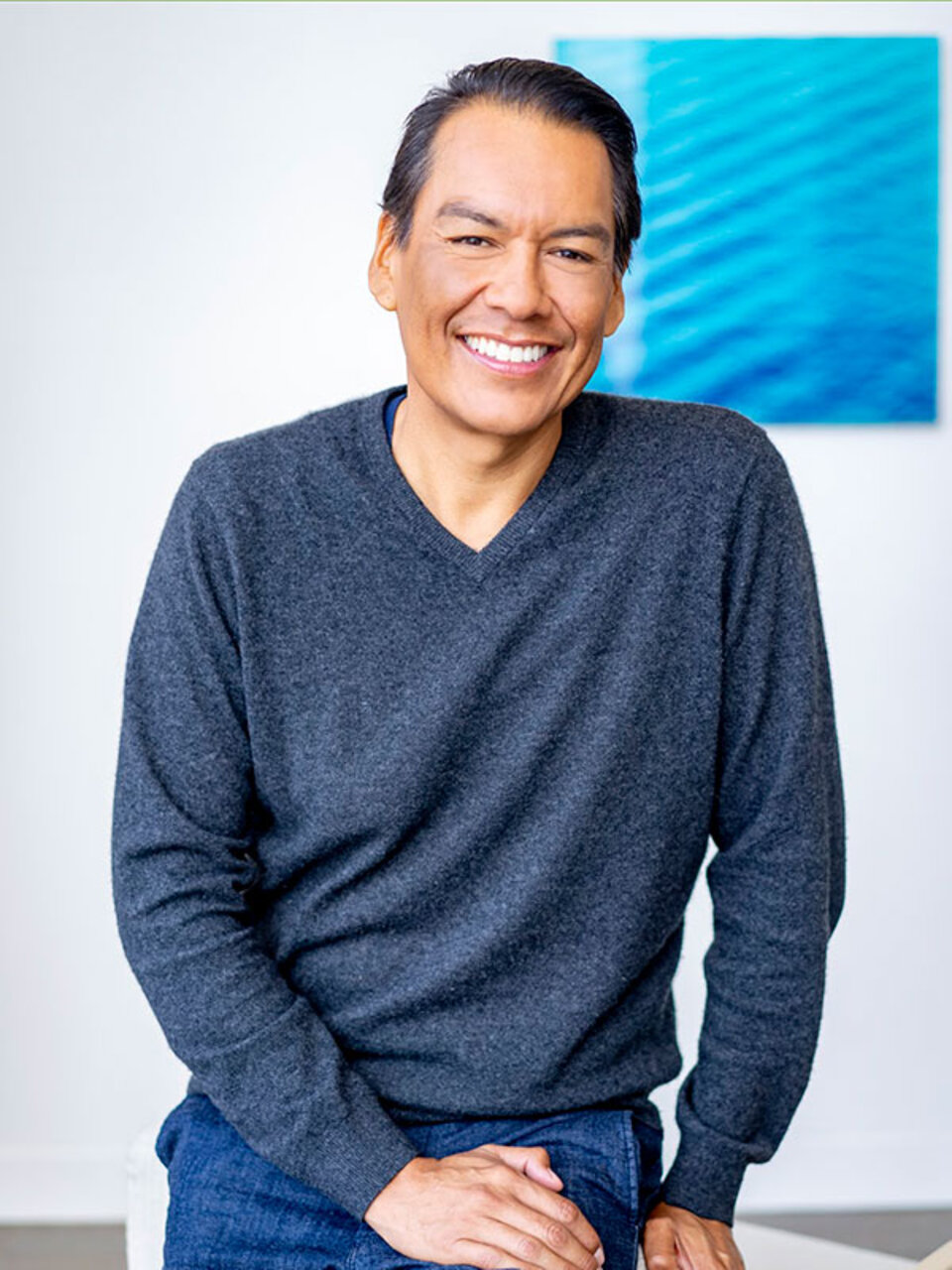
Bird Runningwater belongs to the Cheyenne and Mescalero Apache Tribes, and was reared on the Mescalero Apache Reservation in New Mexico. Since 2001 he has guided the Sundance Institute’s investment in Native American and Indigenous filmmakers while building a global Indigenous film community. He has nurtured a new generation of filmmakers whose films have put Indigenous Cinema on the global cinema scene. Based in Los Angeles, California, Runningwater serves as the Director of Sundance Institute’s Native American and Indigenous Program overseeing the Native Filmmakers Lab, the Native Producers Fellowship, the Sundance Film Festival’s Native Forum, the Full Circle Initiative and was recently appointed to colead the Institute’s Outreach and Inclusion work across all programs.
The filmmakers and projects he has identified to support through Sundance Institute programs include Sterlin Harjo, his Spirit Award nominated Four Sheets to the Wind and his followup feature Barking Water; Academy Award nominee Taika Waititi, his feature debut Eagle vs Shark and his followup feature Boy; Billy Luther's award winning Miss Navajo and his 2nd feature documentary Grab; Andrew Okpeaha MacLean's Sundance Film Festival Jury Prize winning Sikumi and his feature debut On The Ice which was awarded the Crystal Bear Award and the Best First Feature Prize at the 61 st Berlinale; Aurora Guerrero's Spirit Award nominated Mosquita Y Mari; Sydney Freeland’s Outfest Award winning Drunktown's Finest and her second feature Diedra and Laney Rob a Train which debuted in 190 countries on Netflix; Blake Pickens’ IFCFilms The Land; Ciara Lacy’s Out of State and Shaandiin Tome’s Mud (Hashtł‘ ishnii).
Highly sought after for his expertise and knowledge, Runningwater has led workshops and been featured on panels ranging from the Sundance Film Festival's "From Oral Tradition to the Screen: Indigenous Screenwriting" to "A Conversation with Merata Mita" at the MessageSticks Festival held at the Sydney Opera House in Australia. He was a panelist at the Raising Voices Conference, hosted by the Hubert Bals Fund at the Rotterdam Film Festival in the Netherlands, exploring training programs that will stimulate the next generation of culturally distinctive and authentic filmmaking voices, and has been featured as the Opening Keynote Speaker at the Indigenous Film Conference hosted by the Sami International Film Centre in Kautokeino, Norway. Runningwater currently serves on the Comcast/NBCUniversal Joint Diversity Council, the Board of Directors of the First Peoples Fund and on the Executive Committee of the LAFF Society made up of former staff of the Ford Foundation. He is a past member of the Board of Jurors for the George Foster Peabody Awards, and has been featured and profiled in The Color of Our Future, a book written by Political Commentator Farai Chideya. He was honored recently as a Distinguished Alumni of the University of Oklahoma’s School of Arts and Sciences. Runningwater has served on competition juries for film festivals such as the Berlin International Film Festival (Germany), São Paolo International Film Festival (Brazil), Sydney Film Festival (Australia), Guanajuato International Film Festival (Mexico) and Cinemalaya Film Festival (Philippines).
Before joining Sundance Institute, Runningwater was based in New York City and served as executive director of the Fund of the Four Directions, the private philanthropy of a Rockefeller family member. Prior to joining the Fund, Runningwater served as program associate in the Ford Foundation’s Media, Arts, and Culture Program. A recipient of the Woodrow Wilson Foundation’s National Fellowship in Public Policy and International Affairs, Runningwater is also an alumnus of Americans for Indian Opportunity’s Ambassadors Program and the Kellogg Fellows Program. He is a graduate of the University of Oklahoma with degrees in Journalism and Native American Studies, and he received his Master of Public Affairs degree from the University of Texas at Austin’s Lyndon B. Johnson School of Public Affairs.